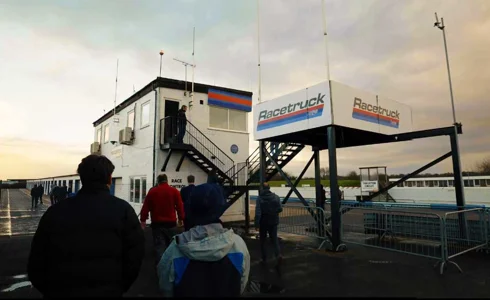
Indrek Heinmets
Theme
Chemical Energy ConvertersProject
Investigation of Methanol as an Alternative Internal Combustion Engine Fuel for Marine ApplicationsSupervisor(s)
Dr Stefania Esposito, Prof Sam AkehurstBio
Indrek joined the AAPS CDT, having recently graduated from his BEng (Hons) in Mechanical Engineering with first-class Honours in 2022 at the University of Greenwich. During his time of studies, Indrek acquired a keen interest in computer-aided modelling, working on CAD, FEA and CFD-based projects. During the first lockdown of the COVID-19 pandemic, he embarked on a self-guided educational project, learning the fundamentals of Python programming, which carried through to his final year thesis, where he used Python scripts to automate the modelling and FEA process of carbon fibre composites. He discovered that his modelling methods optimised the fibre-composite development process, and, as a result, intends to publish his research for further development into a fully dynamic modelling package.
From an early age, Indrek has had a passion for anything with a combustion engine, working on his car and dirt/street bikes. This led him to study engineering and join the AAPS programme, to combine his passion for cars and motorcycles with his interest in computational modelling, through pursuing a PhD project with an automotive partner, tackling the current climate crisis and developing sustainable propulsion systems for the future. He also works as a part-time design engineer for Ribcraft to gain industrial experience while refining and maintaining his modelling and problem-solving skills.
Fun Facts
- I still own my first car, a 2007 Corolla, that I work on and take out to ice racetracks during winters
- Born and raised in Estonia until 19 years of age
- Played Disc golf for over 7 years
- I’m a passionate hobby cook
- Founded a Start-Up in middle school
Investigation of Methanol as an Alternative ICE Fuel for Marine Applications
Indrek's research project addresses a significant problem in the field of propulsion: the need for cleaner, more efficient liquid fuels. The project focuses on modelling the evaporative behaviour of methanol, a type of alcohol, chosen due to its unique properties such as a high-octane number, auto-ignition temperature, heat of vaporization, embedded oxygen, and excellent lean burn properties. These characteristics can lead to cleaner, more efficient combustion, and thus, reduced emissions while improving performance.
The high evaporative cooling effects of methanol, attributed to its high heat of vaporization, are a key focus. The project aims to develop and improve overall understanding and low-dimensional models of methanol's evaporative behaviour by conducting experimental data collection on a test engine fuelled with various methanol blends under various operating conditions and numerical experiments for additional, high-fidelity data. By better understanding and predicting the evaporative characteristics of methanol, this research seeks to enhance fuel efficiency and engine performance while simultaneously reducing emissions in marine engines. Ultimately, these findings could contribute to helping the UK achieve its net-zero targets by 2050 and be potentially applied to larger marine applications and other transport sectors, such as automotive and aviation, in the future.
